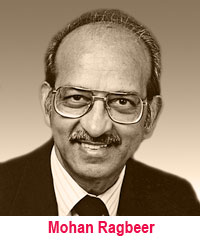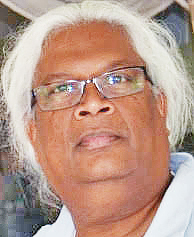Opinions
India 71

Many secularists (communists, agnostics, atheists, nominal Hindus, others) resent the attention given to Hindus, and snidely refer to Modi’s program as Hindutva, while Modi himself has been inclined to describe his philosophy as respect for all religions. But that respect is abused by the plethora of evangelists who fervently pursue the Joshua project, with greater earnest since the labelling by the Pope of the year 2000 as the year of conversion. That was politely received by PM Vajpayee and the Indian nation, when they should have rejected it as insulting and an assault on a nation’s beliefs. Coerced, purchased or mandatory conversion should be an unlawful act, as it is usually applied to the poor, hungry, defenceless or immature (young or mentally afflicted). As example, what has Mother Teresa’s billions done for India? Hardly noticeable, but maybe the Vatican Bank can answer that. Mahatma Gandhi had condemned conversion, and one dare not try it in Muslim, Jewish or Christian communities. It is a delicate and difficult matter for a tolerant society, like India, which allows proselytising.
PM Modi’s address to the nation from New Delhi’s Red Fort was his fifth since the BJP/NDA came to power in 2014. In it he reviewed his record, a mixture of highs and lows, mostly positive, with gains in infrastructure, the economy attaining a steady growth in the past year, now up to 8.2%, to a GDP of $2.8 trillion (3.25% of the world’s; US 23%, China 16%), bringing it close to France and England, the sixth and fifth largest economies at $2.92T and $2.93T; India will overtake these two in 1-2 years, barring a disaster. It’s useful to know that in the late 18th century, India commanded 24% of world GDP, China 30% and UK 3+% ! Modi announced the passage of a bill to establish a long overdue Commission to oversee the economic, social and educational progress of backward castes, and reminisced on upcoming anniversaries, notably the Jallianwalla Bagh massacre of 13th April 1919, and the birth anniversary of Deendayal Upadhyaya, one of the authors of the RSS. He noted the advances in Space technology and the likelihood of launching an object, with the Flag, in space in three years’ time. This parallels the establishment of women in the armed services; six women naval officers completed circumnavigation of the globe in May in an INS sailboat, the Tirani, a first. So also was the climbing of Everest, also in May, by tribal boys under their female trainer. He proudly announced the provision of improved health care by the poor. Odisha too launched a health welfare scheme aimed at benefiting 700,000 families. Healthcare is a jumble of private and public services, foreign and local, affordable and elite, honest and dishonest. A cleansing is long overdue. India assisted Nepal by donating 30 ambulances and six buses to hospitals, charitable organisations and educational institutions.
Reference to various schemes, like social assistance, pensions, youth skill training; missions e.g. education, all levels, solar power, Tb elimination by 2020; urban development; campaigns like Make in India; projects e.g. sagarmala, (seaports development), enhancing rural amenities, and many others, complete his oration.
Chopsticks versus being fed by hand
 Romeo Kaseram
Romeo Kaseram
It takes qualities of patience, dexterity, and when just starting out, a lot of luck when eating with chopsticks. There are days when I wonder what Ma would say, were she to see me today doing a remarkable thing: holding two thin strips of bamboo delicately in my right hand, levering it into wonton soup and lifting out dumplings as animated and evasive as live fish. Or picking up a single grain of rice with the precision of hand-and-eye coordination just because I could do it with flair, and the self-awareness of ostentation, but mostly with the hubris of performativity refined by practice.
I suspect she would shake her head, not as much with incredulity, but more with apprehension at the precarity of pieces of food positioned in the in-between space of bowl to mouth, her eyes narrowing and following the dipping and then lifting, the levering of the actionability inside and outside axes, her eyebrows raised upwards, forehead creased in puzzlement at the horizontality and verticality of eating dinner. I imagine her intrigued at the theory of mobility and levering driving the manoeuvring fluidity of chopsticks, and that with her compensating intuition she would easily grasp how its actionability interlocks into a fixed, underlying structuralism.
It had been Ma’s objective in her later life to have me envision, and experience, more of the world than she was viewing through the growing cloudiness that had started to creep into her eyes just after I was born. Growing up around her, I came to understand her gaze into the world of books had been limited not only to the restricted radius cast by the subdued yellow of a sputtering kerosene lamp, but that her ambition to learn, and her longing to know the construct of this world, had been stunted at a young age by her parents, who having co-opted her to care for an annually increasing brood of siblings, took her crying out of school at a young age.
So it was she made up for her stymied education and its lack, a closing of the doors to scholarship in a time of indigence and want; instead, she recited a daily mantra, focusing the lens of her ambition on my skeletal frame, ignoring the bony kneecaps that knocked together like husked coconuts, focusing on my massive cranium with its dishevelled knots, cajoling me day-in, night-out, so the light of her longing narrowed to heat up my head: “You must take learning, boy! Your head is bigger than the rest of you and hairy like a coconut for a good reason. You must read and learn! Read and learn!”; until like tinder penetrated by a tightened stream of sunlight, my brain flamed up with enlightenment.
Perhaps Ma would not have even arched a horizontal eyebrow at the verticality of my prowess with chopsticks, since she would have anticipated that my setting out on the journey of discovery was to lose parts of me a little at a time; and a little more, and then even more, until what was left as I stood before her was an after-image of the sickly boy with knees that knocked together in rhythm with his teeth after a cold, well-water bath, and whose chest resisted the proven old-wives cure of a prickly poultice for asthma – but whose eyes were lit from the inside with the slow, hot burn of a forge readying its iron for shaping. Ma would have known that for me to set out on this journey of a thousand steps of schooling would eventually lead to an increasing mobility, where learning fired up so its engine roared with a growing exponential, and where knowledge picked up a forward velocity that left many signposts behind.
So it was when I came to discover the theory of heavy-lifting behind chopsticks; and the many other actionabilities layered onto the structural forms of this world Ma knew existed, but had been denied the opportunity to discover: “Read and learn! Learn and read!”, she preached.
It meant reluctantly leaving Ma behind in the kitchen to focus on my schoolwork, and being torn so I landed in an in-between space between the books and wanting to feel the heat of a hot fireside, watching her cheeks inflate like bellows as she blew down the long, narrow iron pipe so the embers glowed, even as the forge flamed inside my head. It was in the makeshift structure of her kitchen where Ma pounded spices with a found riverbed rock; here she chopped, stirred, and hissed at the smoky firewood, even as I coughed and spluttered with metaphors.
When the hurly-burly of her cooking was done, the pots breathing with relief after the hazards of hot oil splattering like sun flares, Ma spooned food into a bowl, and with hands scented with perfumes of garlic oil and onions, would roll rice, and sauce, and vegetables, and then lift each perfected ball to my opened, waiting mouth in the levering actionability of a mother-bird feeding her weakest chick.
No theory of chopsticks could replace the fluidity of this grandmotherly dedication.
